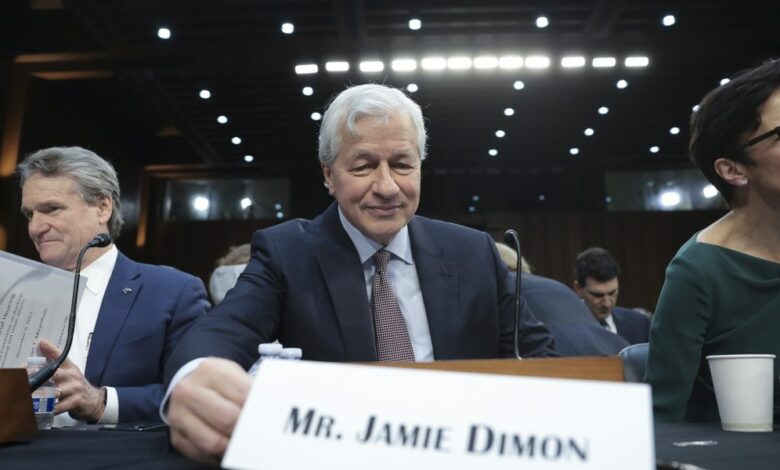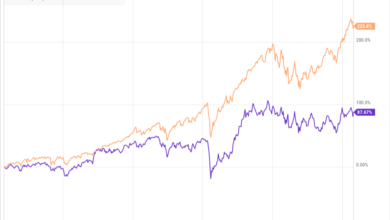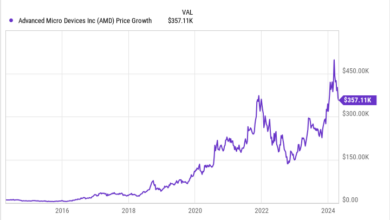JPMorgan CEO Jamie Dimon compares AI’s potential impact to electricity and the steam engine


JPMorgan Chase & Co. Chief Executive Officer Jamie Dimon said artificial intelligence may be the biggest issue his bank is grappling with, likened its potential impact to that of the steam engine and said the technology could “augment virtually every job.”
The CEO devoted a chunk of his annual shareholder letter to the importance of AI for the Wall Street giant’s business and for society at large. The bank has identified more than 400 use cases for the technology across marketing, fraud and risk, amassed thousands of AI experts and data scientists and begun exploring deploying generative AI, Dimon said.
“We are completely convinced the consequences will be extraordinary and possibly as transformational as some of the major technological inventions of the past several hundred years,” Dimon said in the letter. “Think the printing press, the steam engine, electricity, computing and the Internet, among others.”
Dimon delivered his verdict on AI’s importance in an expansive dispatch that also lambasted a set of regulatory proposals, sounded a stark warning on geopolitics, took aim at shareholder advisory firms and offered a spirited defense of the role of market making in the financial system. And as expected, the 68-year-old weighed in on the economy, reiterating his concern that risks of persistent inflation, quantitative tightening and the ongoing wars in Ukraine and the Middle East loom large even as the US economy remains robust.
“These markets seem to be pricing in at a 70% to 80% chance of a soft landing — modest growth along with declining inflation and interest rates,” Dimon wrote. “I believe the odds are a lot lower than that.”
Profit Record
Dimon released his letter after JPMorgan notched the highest annual profit in the history of American banking last year. The lender, which reports first-quarter earnings on Friday, benefited from turmoil among regional lenders that began just over a year ago, sending depositors seeking the safety of larger financial institutions. JPMorgan played a major part as those events unfolded, ultimately staging a rescue of First Republic after it failed.
The deal “was not something that we would have done just for ourselves,” Dimon wrote. At the time, JPMorgan said the acquisition would add more than $500 million to earnings annually, acknowledging that was probably conservative. In his letter, Dimon said that figure would likely be “closer to $2 billion.”
The regional banking turmoil unfolded as regulators put the finishing touches on proposals expected to saddle US banks with tougher capital requirements, known as Basel III Endgame. Dimon, an outspoken critic of the proposals, devoted an entire section of his shareholder letter to what he said was the need for a serious review of the bank regulatory and supervisory process. He also reiterated earlier criticisms about the potential for the proposals to cause economic harm.
Market Making
The proposed rules could also damage market making, where banks help investors buy and sell securities, according to the CEO. Dimon dedicated multiple pages defending the role banks play in that business, which he said some regulators seem to view as speculative, hedge-fund like activity.
“This thinking is what might be leading them to constantly increase capital requirements,” he wrote.
JPMorgan earns about $100 million in daily revenue from the business, which has only lost money on 30 trading days over the last decade, according to Dimon. The proposed rules, which Federal Reserve Chair Jerome Powell signaled last month will be scaled back, could harm market stability, Dimon wrote.
Proxy Votes
Dimon also used his letter to take aim at proxy advisers — firms which investors like state pension funds and other big asset managers pay for recommendations on how they should vote their stock on contentious topics such as executive compensation.
Dimon has long chided shareholders for casting votes solely based on recommendations from those firms as lazy and irresponsible. But he went a step further on Monday, calling out the two main US advisers, Institutional Shareholder Services and Glass Lewis & Co., for having what he deemed too much sway determining the outcome of shareholder elections.
“While asset managers and institutional investors have a fiduciary responsibility to make their own decisions, it is increasingly clear that proxy advisors have undue influence,” Dimon wrote.
Dimon over the years has had to fend off a number of resolutions the two firms backed. He noted Monday that ISS is owed by German firm Deutsche Boerse AG, while Canadian private equity firm Peloton Capital owns Glass Lewis, and questioned if American corporate governance should be determined by for-profit institutions with “their own strong feelings about what constitutes good corporate governance.”
Dimon also said the bank is taking steps to diminish the role of proxy adviser recommendations. By the end of this year, JPMorgan Asset Management will have largely eliminated third-party proxy adviser voting recommendations from its voting systems, he said. The firm will also work with third-party proxy voting advisers to remove their voting recommendations from research reports they provide to the division by the 2025 proxy season.
Other highlights from the letter:
- On the growing private credit industry: “Frequently, the weaknesses of new products, in this case private credit loans, may only be seen and exposed in bad markets, which private credit loans have not yet faced,” Dimon wrote. “When credit spreads gap out, when interest rates go up and when some leveraged companies suffer in the recession, we will find out how those loans survive stress testing.”
- Dimon addressed JPMorgan’s recent decision to exit Climate Action 100+, an investor group formed in 2017 to fight climate change. His firm “invested in our own in-house experts and matured our own risk management processes over the years,” he wrote. “As a result, we are going to go our own way and make our own independent decisions.”
Source link




